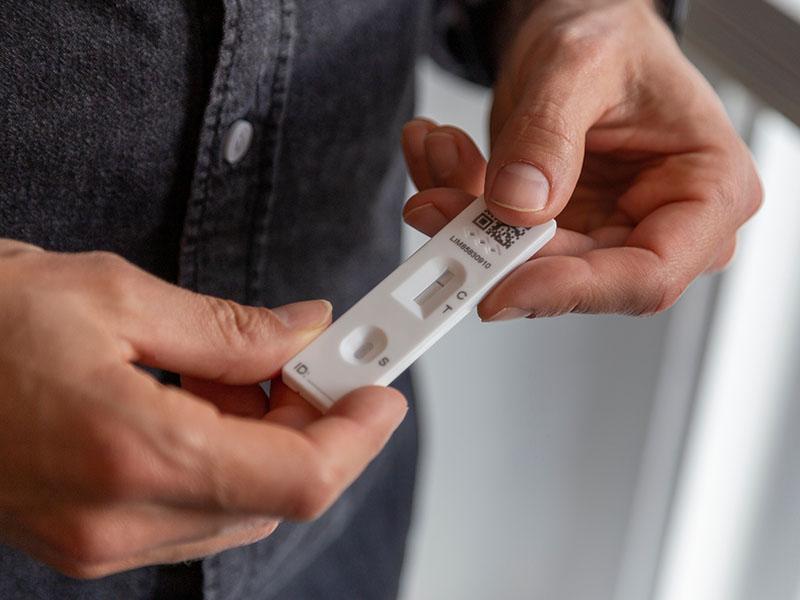The latest data shows that 3,090 people became infected in North Somerset in the week ending 27 March, and infection rates have been increasing for the past four weeks.
North Somerset Council's director of public health, Matt Lenny, said: "Now that restrictions have been lifted and people are getting back to doing more of the things they've missed, we are seeing a significant increase in case numbers.
“With so many local people having been vaccinated, for most people the symptoms are relatively mild and manageable, but for our more vulnerable residents and those with pre-existing health conditions it can still be a serious illness.
"My advice to everyone is keep taking sensible precautions. Wear a mask if you can when you're indoors in crowded settings, keep up the regular hand washing, social distance and keep up to date with vaccinations. All of these things will reduce the spread of infection, not only of covid but of other infections too."
Most free lateral flow testing for people without symptoms has now ended but it will continue in some high-risk settings where infection could spread quickly while case rates are high. You’ll be able to buy tests from some shops if you want to.
North Somerset's three covid testing centres at Bristol Airport, Clevedon and Weston-super-Mare have closed this week. Now that testing has been scaled back to specific groups and settings, the way incidence and the impact of covid is reported will change.
Cllr Mike Bell, the council's deputy leader and executive member for health said:
"It's disappointing that the government has chosen now to withdraw free testing for the majority of people when we are seeing such high case rates, not just locally, but across most of the country.
“While restrictions have been removed and most testing has been reduced, the pandemic isn’t over. Please keep following public health advice to protect yourself and others around you, particularly those people who might become seriously ill from covid.
"However, care home residents, hospital patients and other vulnerable groups will still be given free tests if they have symptoms. The government will be able to launch a rapid testing response should it be needed, for example if a new variant of concern emerges.
"The reality is though that it will be harder now for most people to know whether they do have the virus or not in the future, with a much greater emphasis on personal responsibility to protect those around us."
As well as the daily measures we can all take to stay safe, vaccinations remain free and spring booster jabs are now being offered to people over the age of 75 and in clinically vulnerable groups.
Matt added: "It's never too late to get vaccinated, so whether you're due a booster, or need to have your first or second doses, vaccinations are widely available."
The NHS is now offering vaccines to children aged 5 to 11 years. Appointments are being held in dedicated children’s clinics across our area and can be booked online via the National Booking Service or by calling 119. Some walk-in clinics are also available and details of these, along with information about all the vaccination options in our area can, be found at www.grabajab.net.
You can find the latest information on living safely with respiratory infections, including COVID-19 and an updated list of coronavirus symptoms in adults on the GOV UK website.
